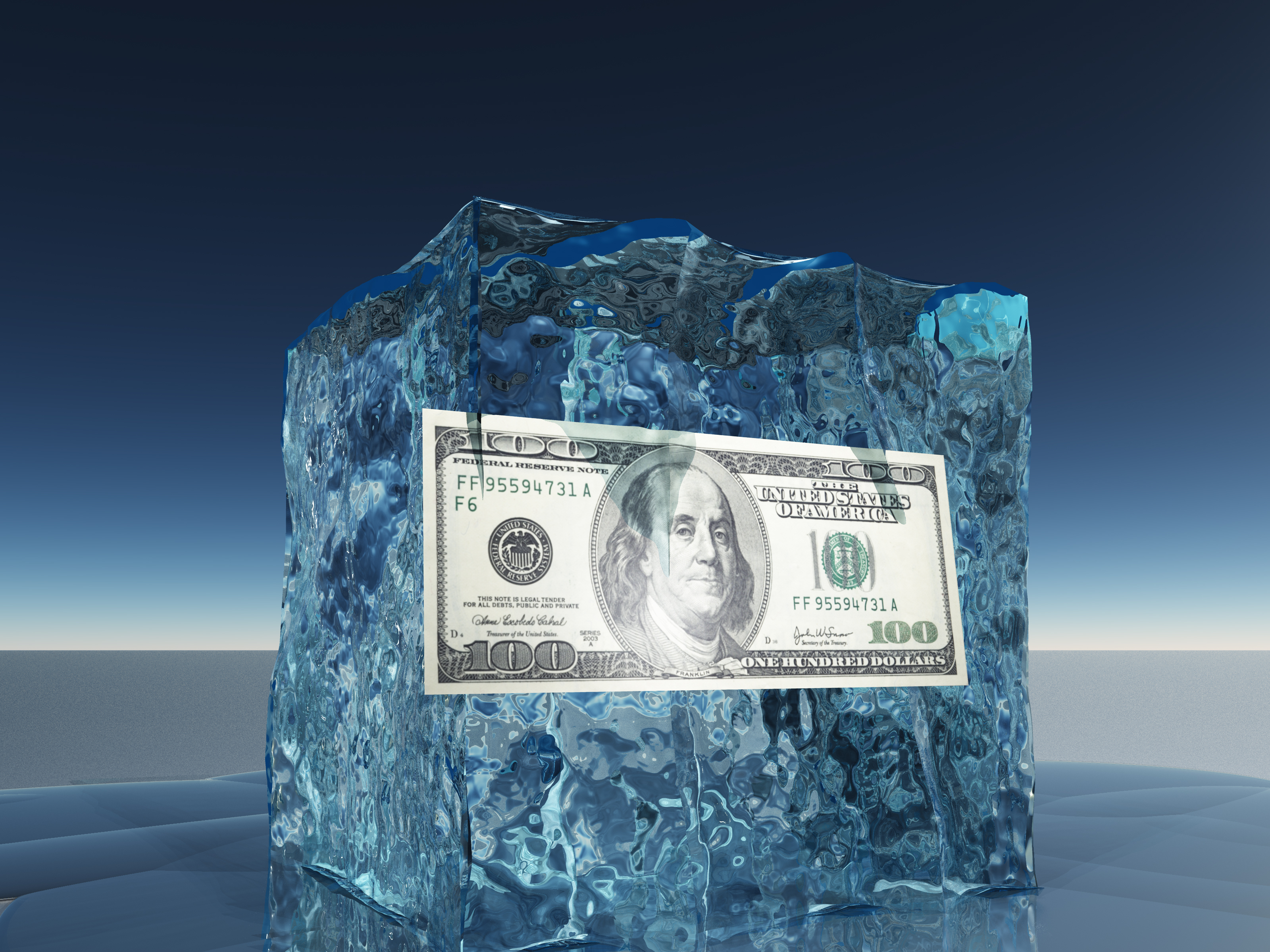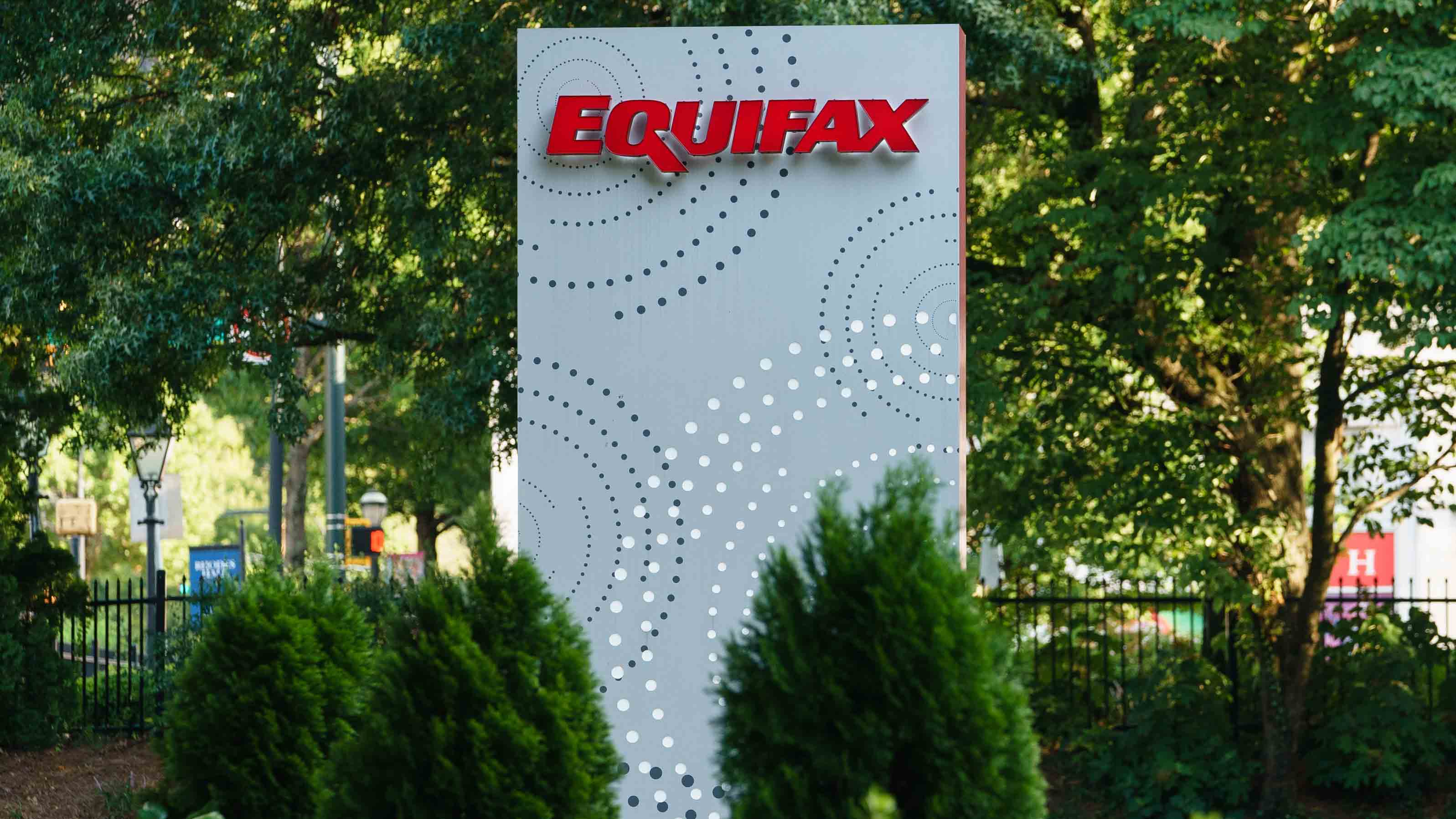Free Credit Report Freezes
A new federal law will soon allow everyone to freeze -- and thaw -- their credit report free. A freeze can deter identity theft.

Profit and prosper with the best of Kiplinger's advice on investing, taxes, retirement, personal finance and much more. Delivered daily. Enter your email in the box and click Sign Me Up.
You are now subscribed
Your newsletter sign-up was successful
Want to add more newsletters?

Delivered daily
Kiplinger Today
Profit and prosper with the best of Kiplinger's advice on investing, taxes, retirement, personal finance and much more delivered daily. Smart money moves start here.

Sent five days a week
Kiplinger A Step Ahead
Get practical help to make better financial decisions in your everyday life, from spending to savings on top deals.

Delivered daily
Kiplinger Closing Bell
Get today's biggest financial and investing headlines delivered to your inbox every day the U.S. stock market is open.

Sent twice a week
Kiplinger Adviser Intel
Financial pros across the country share best practices and fresh tactics to preserve and grow your wealth.

Delivered weekly
Kiplinger Tax Tips
Trim your federal and state tax bills with practical tax-planning and tax-cutting strategies.

Sent twice a week
Kiplinger Retirement Tips
Your twice-a-week guide to planning and enjoying a financially secure and richly rewarding retirement

Sent bimonthly.
Kiplinger Adviser Angle
Insights for advisers, wealth managers and other financial professionals.

Sent twice a week
Kiplinger Investing Weekly
Your twice-a-week roundup of promising stocks, funds, companies and industries you should consider, ones you should avoid, and why.

Sent weekly for six weeks
Kiplinger Invest for Retirement
Your step-by-step six-part series on how to invest for retirement, from devising a successful strategy to exactly which investments to choose.
Question: I'd like to freeze my credit record to protect against identity theft. I heard that Congress recently passed a law making credit freezes free. When can I get my free freeze?
Answer: Congress just passed a law that will prohibit the three big credit bureaus—Equifax, Experian and TransUnion—from charging a fee to place or lift a credit freeze. The free freezes will be available throughout the country this fall; the credit bureaus have until September 21, 2018, to implement the new law. A credit freeze prevents new creditors from reviewing your credit report, making it harder for identity thieves to take out credit in your name.
Until the new law goes into effect, the cost to freeze your credit record varies by state. In many states, each credit bureau charges $5 to $10 to freeze your credit record and may charge a similar fee to lift the freeze if you're applying for a loan. (To hinder ID thieves, you need to freeze your record at all three credit bureaus.)
From just $107.88 $24.99 for Kiplinger Personal Finance
Become a smarter, better informed investor. Subscribe from just $107.88 $24.99, plus get up to 4 Special Issues

Sign up for Kiplinger’s Free Newsletters
Profit and prosper with the best of expert advice on investing, taxes, retirement, personal finance and more - straight to your e-mail.
Profit and prosper with the best of expert advice - straight to your e-mail.
But several states recently passed laws to eliminate credit-freeze fees. You can place a free credit freeze in Colorado, Indiana, Maine, Maryland, New Jersey, New York, North Carolina, South Carolina, Utah and Washington, D.C. (You may need to pay a fee to lift the freeze in some of these states.) By the end of June, Michigan, Nebraska, Oregon and Washington state will also be offering free credit freezes.
Go to www.equifax.com, www.experian.com and www.transunion.com to initiate the freeze and find out more about the cost and procedures. Equifax, which experienced a massive data breach last year, is offering free freezes for all consumers until June 30.
Also check with your state attorney general's office or consumer protection bureau to find out whether your state offers additional consumer protections on security freezes beyond what the federal law provides.
Profit and prosper with the best of Kiplinger's advice on investing, taxes, retirement, personal finance and much more. Delivered daily. Enter your email in the box and click Sign Me Up.

As the "Ask Kim" columnist for Kiplinger's Personal Finance, Lankford receives hundreds of personal finance questions from readers every month. She is the author of Rescue Your Financial Life (McGraw-Hill, 2003), The Insurance Maze: How You Can Save Money on Insurance -- and Still Get the Coverage You Need (Kaplan, 2006), Kiplinger's Ask Kim for Money Smart Solutions (Kaplan, 2007) and The Kiplinger/BBB Personal Finance Guide for Military Families. She is frequently featured as a financial expert on television and radio, including NBC's Today Show, CNN, CNBC and National Public Radio.
-
 How Much It Costs to Host a Super Bowl Party in 2026
How Much It Costs to Host a Super Bowl Party in 2026Hosting a Super Bowl party in 2026 could cost you. Here's a breakdown of food, drink and entertainment costs — plus ways to save.
-
 3 Reasons to Use a 5-Year CD As You Approach Retirement
3 Reasons to Use a 5-Year CD As You Approach RetirementA five-year CD can help you reach other milestones as you approach retirement.
-
 Your Adult Kids Are Doing Fine. Is It Time To Spend Some of Their Inheritance?
Your Adult Kids Are Doing Fine. Is It Time To Spend Some of Their Inheritance?If your kids are successful, do they need an inheritance? Ask yourself these four questions before passing down another dollar.
-
 TransUnion Fined $23M For Tenant Screening, Credit Freezes
TransUnion Fined $23M For Tenant Screening, Credit FreezesGovernment charges TransUnion over illegal rental background checks and security freezes on consumer credit reports.
-
 Credit Cards vs Charge Cards: What Are the Differences?
Credit Cards vs Charge Cards: What Are the Differences?All you need to know about credit cards vs charge cards — differences, pros and cons.
-
 How Many Credit Cards Should I Have?
How Many Credit Cards Should I Have?How many credit cards should you have? The answer isn’t as straightforward as you might think — it all depends on your financial situation.
-
 Credit card delinquency expected to increase in 2023
Credit card delinquency expected to increase in 2023Credit card and personal loan delinquency rates are expected to increase this year.
-
 What Is a Good Credit Score?
What Is a Good Credit Score?Having a good credit score can save you hundreds, even thousands of dollars on credit cards, mortgages and other loans.
-
 Best Credit Cards for Bad Credit 2023
Best Credit Cards for Bad Credit 2023If used wisely, these credit cards can help you dig out of bad credit; you may even earn 2% cash back.
-
 How to Freeze Your Credit in Three Steps
How to Freeze Your Credit in Three Stepscredit & debt Freezing your accounts at the three major credit bureaus is the best way to prevent thieves from opening new credit accounts in your name.
-
 Did Equifax Botch Your Credit Score?
Did Equifax Botch Your Credit Score?credit score Equifax is in the news–yet again–this time for sending lenders the wrong credit score. Here’s how to find out if you were affected and what to do next.